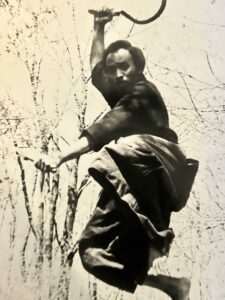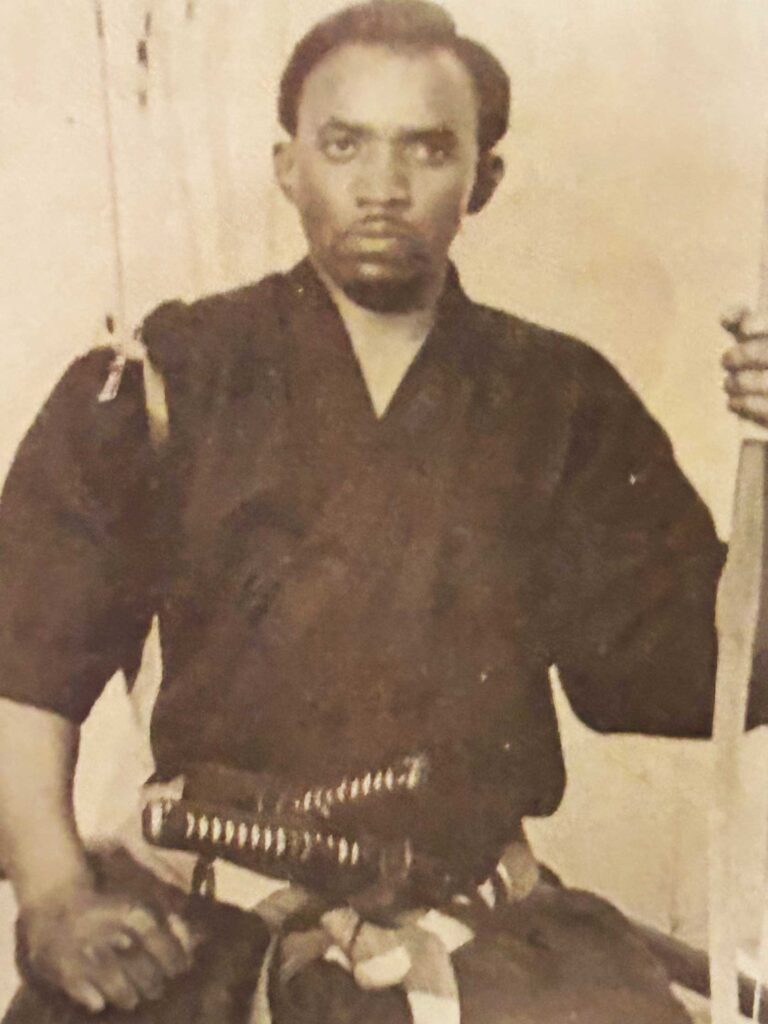Banner Sports Sponsored by Cruz Companies
When you hear the word “martial arts,” you probably think of Bruce Lee, the legendary martial artist who became an international star on the silver screen. I still find it hard to put down Bruce Lee movies. And I know I'm not alone. The man was a bona fide superstar athlete who had to break through countless racial and cultural barriers while honing his extraordinary skills. His legend achieved iconic status when he died at the young age of 32. However, much of his life was focused on teaching others the skills he had mastered. His student list is a who's who of the martial arts world.
Europeans coined the term “martial arts” to refer to Mars, the Roman god of war. Despite common ties to Asian cultures, all cultures have their own forms of martial arts systems and rituals.
But long before Bruce Lee, black martial artists were denied a place in the history of the sport.
Martial arts developed after the civil rights movement, but they did not develop in conjunction with the movement. According to numerous black and Hispanic people currently or recently involved in the field of martial arts, people of color have been a dominant force in organized tournaments since the 1960s and his '70s. And the same prejudice and racism that plagued the sport back then is still with us today. The real culprits in this scenario are those who currently control martial arts. The alphabet soup of organizations that claim to be the dominant authority on martial arts is difficult to track down, and the racism and discrimination they perpetuate is equally difficult to pursue.

Ron Duncan uses a farmer's scythe in martial arts action.Photo: Provided by Ronald Duncan Jr.
Generations of victims have been speaking out about this issue, but like much of today's thinking, people simply hear the words racism and discrimination and become blind to the issue. will no longer be heard.
Ronald Jr. and Gregory Duncan, sons of the late martial arts legend Ronald Duncan, America's first ninja and the father of American Ninjutsu, spoke about their father's legacy in a recent interview.
“After serving his country as a Marine, my father honed his martial arts skills and became a multiple black belt martial artist,” Ronald Jr. said. “He and his mother, Betty Duncan, who played an important role in his career, had five children, and my father taught each of us martial arts skills. Martial arts is more than just practice. . They are a way of life.”
“My father didn't see color, so we were raised to respect everyone,” Gregory Duncan said. “Our school, Duncan Martial Arts, operates out of Union, New Jersey and trains students from the age of four to his 74th year. His true passion was to share martial arts with people from all walks of life.”
Gregory Duncan's father is considered one of the great martial arts pioneers. Born in Panama in 1938, he introduced his ninjutsu skills when he opened his first martial arts dojo in Brooklyn in 1964 after practicing for five years at his recreation center in St. John's. It became known nationwide.
After introducing martial arts to the American stage, Professor Duncan stepped onto the global stage in 1968 at the International Martial Arts Convention in New York City. This followed his breakthrough appearances at the 1964 and 1965 World's Fairs. His demonstrations of innovative ninjutsu techniques have received rave reviews from masters and influencers around the world.
He captivated audiences and became known as the “Father of American Ninjutsu.” However, despite the approval of the Japanese government, he faced expulsion from Black Belt Magazine for several years due to disagreements with the magazine's editors. Later the publication recognized him as a martial arts pioneer. It was his unwavering dedication to the pioneers and teachings of ninjutsu that cemented his place in history. Ronald Duncan played an important role in popularizing ninjutsu from the 1970s through his 1990s.
His worldwide fame skyrocketed with his TV appearance on ABThe world of oriental self-defense at C's Wide World of Sports at Madison Square Garden. At the event, hosted by Aaron Banks, Duncan displayed a wide range of martial arts expertise, including proficiency in various disciplines such as Judo, Hakko-Ryu Jiu-Jitsu, and Dainippon Ju-Jitsu Ryu. Both Ronald Jr. and Gregory said, “Our fathers were creative enough to be pioneers in the early generations of martial arts.”
he was also renoHe won awards as a master of knife throwing, firearms, and stealth techniques. His calm demeanor and martial arts ability made him a pioneer of the wind martial arts system that is recognized worldwide today. Duncan was a deeply honest man who spoke his mind about his craft and the difficulties of dealing with his 1960s world until the day he died. The sad thing is that the media at the time chose to focus on his statements about race while missing his real message.
Ronald Jr., Gregory, and their three siblings (oldest Valarie, Deborah, and youngest Christina) live in the legacy built by their famous father.
“Our father had the courage to speak out against social injustice throughout his life,” Ronald Jr. said.
“He taught us to be brave and to stand up for what we believe in,” Gregory said. “These are the principles we live by to this day.”
Brother Ronald also points out: “My father taught his five children to use their martial arts training for self-defense, an invaluable tool needed to survive the harsh streets of Brooklyn, New York.”
Ronald Duncan included black pioneers such as Moses Powell, Vic Moore, Kareem Abdullah, Joe Hayes, Chaka Zulu, Fred Hamilton, George Coffield, Steve Muhammad, and Ron Van Cleef. It's part of the martial arts heritage.
They have all suffered from racism and discrimination in one way or another, but refused to let that prevent them from reaching legendary status in martial arts. This column honors their determination to succeed despite the racism and discrimination they sought to destroy.

